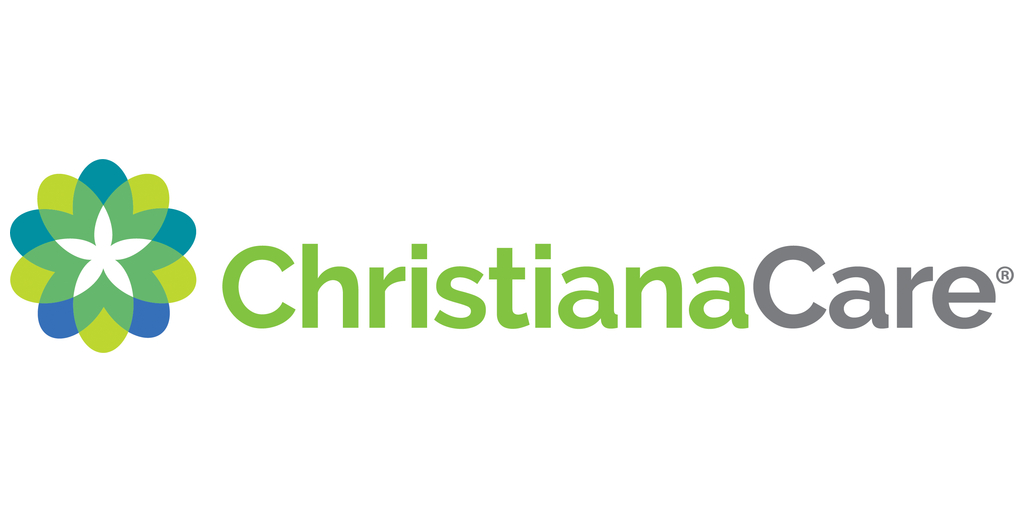ChristianaCare Improves Care for Black Patients Living with Heart Failure and Hypertension

Digital hybrid platform with dedicated health coaches delivers significant improvements for heart patients; expands to all patients through ChristianaCare’s Center for Virtual Health
WILMINGTON, Del.–(BUSINESS WIRE)–ChristianaCare’s Center for Heart & Vascular Health has dramatically improved the clinical outcomes of Black patients living with heart failure and hypertension by using a digital hybrid platform that provides patients with a dedicated health coach to ensure their care plan is followed and treatment goals are achieved.
Through this innovative approach, ChristianaCare achieved a significant improvement in the number of Black patients adhering to prescribed doses of guideline-directed medical therapy (GDMT) for heart failure.
“At ChristianaCare, we are deeply committed to eliminating disparities and achieving health equity in the communities we serve,” said Kirk Garratt, M.D., medical director of the Center for Heart & Vascular Health. “As we celebrate heart month this February, we are proud that we have been able to significantly improve the health outcomes of our patients, especially addressing health disparities in the Black population for patients with heart failure and hypertension.”
Approximately 32% of ChristianaCare’s heart failure patient population identify as Black, which is a higher percentage compared to the Black population nationally (12.4%).
Historically, Black Americans have experienced racial disparities in heart failure treatment and experience worse patterns of adherence to guideline-directed medical therapy (GDMT). Additionally, Black Americans have a 30% greater risk of death from heart disease than white Americans.
Combining technology and human-powered guidance
This novel approach to care is powered by Story Health, a leading health technology services company. Its digital platform and health coaches have been able to deliver superior outcomes for ChristianaCare’s patients regardless of race. Black patients in particular have made remarkable gains:
- 2.6x improvement on target doses of beta blockers (76%);
- 2.7x improvement on target doses ACE/ARB/ARNIs (54%); and
- 2.2x improvement on target doses of MRAs (57%).
ChristianaCare was also able to achieve improvement in Black patients taking SGLT2 inhibitors, rising from a 32% baseline to 74%. Despite their vital role in treating heart failure, SGLT2 inhibitors are historically underprescribed and see lower adherence – largely due to affordability challenges, as costs can be $500 per month or more. Helping patients overcome cost barriers is critical, which is why the health coaches directly engage with patients to identify those who may need assistance and will work on their behalf to qualify for prescription assistance programs.
“Along with their digital platform, the health coaches from Story Health understand the unique needs of our patients and have helped us create deeper, more accessible relationships with our patients to help improve their health and outcomes,” said Sourin Banerji, M.D., medical director of Advanced Heart Failure and Mechanical Circulatory at ChristianaCare.
The health coaches serve as an extension of the clinician to identify and resolve challenges such as medication adherence, lab work coordination, transportation arrangement and even prescription assistance that cause disruptions in a patient’s care journey and lead to negative outcomes.
Improved control of hypertension
In addition to heart failure patients, ChristianaCare’s collaboration with Story Health supported patients with hypertension, delivering significant reductions in blood pressure for those enrolled regardless of race. Among Black patients specifically, there were significant decreases in average absolute systolic and diastolic blood pressure levels (17 mm Hg and 8 mm Hg, respectively) after 120 days, compared to 8 mm Hg and 5 mm Hg decreases for uncontrolled hypertensives in another digital program after 12 months.
As a result of this initial success, ChristianaCare’s Center for Virtual Health is expanding the use of this care model beyond cardiology to support all patients in the population. Many of these patients struggle to manage high blood pressure, and the use of a continuous care program will be an important tool to help with medication management and addressing social barriers.
“Health equity is an incredibly important initiative, and we see our mission as critical to helping specialty and primary care providers drive more equitable care,” said Story Health Co-founder and President Nita Sommers. “As an industry leader, ChristianaCare understands that every individual deserves compassionate care that is accessible, so we are honored to be working with its cardiology team and now the Center for Virtual Health to improve the health of patients.”
ChristianaCare has been recognized numerous times for high-quality heart care. Among the many achievements are the American College of Cardiology HeartCARE National Distinction of Excellence Award for three consecutive years (2020-2023) and being named among Healthgrades top 100 hospitals for heart care in the U.S. for the past two years (2022-2023).
About ChristianaCare
Headquartered in Wilmington, Delaware, ChristianaCare is one of the country’s most dynamic health care organizations, centered on improving health outcomes, making high-quality care more accessible and lowering health care costs. ChristianaCare includes an extensive network of primary care and outpatient services, home health care, urgent care centers, three hospitals (1,299 beds), a freestanding emergency department, a Level I trauma center and a Level III neonatal intensive care unit, a comprehensive stroke center and regional centers of excellence in heart and vascular care, cancer care and women’s health. It also includes the pioneering Gene Editing Institute.
ChristianaCare is nationally recognized as a great place to work, rated by Forbes as the 2nd best health system for diversity and inclusion, and the 29th best health system to work for in the United States, and by IDG Computerworld as one of the nation’s Best Places to Work in IT. ChristianaCare is rated by Healthgrades as one of America’s 50 Best Hospitals and continually ranked among the nation’s best by U.S. News & World Report, Newsweek and other national quality ratings. ChristianaCare is a nonprofit teaching health system with more than 260 residents and fellows. With its groundbreaking Center for Virtual Health and a focus on population health and value-based care, ChristianaCare is shaping the future of health care.
Contacts
William Schmitt
302-327-3318
wschmitt@christianacare.org
Request an interview


